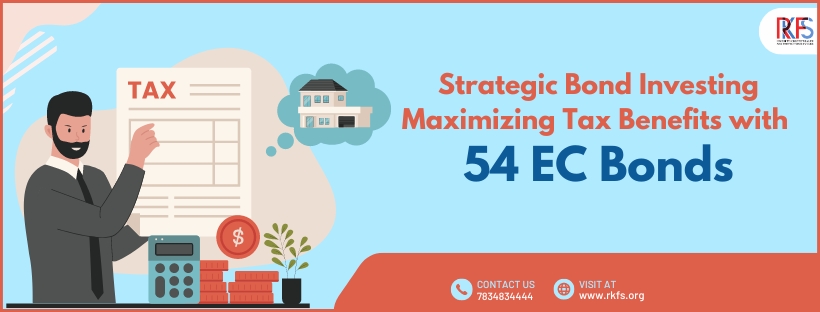You will have to pay taxes on any capital gains you make from selling residential real estate. One can reduce capital gains taxes in a few different ways. Investing in designated tax-saving bonds under Section 54 EC Bonds of the Income Tax Act is one way to do this.
However, if you want to save tax and want to invest in a specified tax-saving bond, you can reach out to us at 7834834444.
What Are 54EC Bonds?
Bonds for capital gains or 54EC Bonds are a special kind of investment that can be taxed outgoing when long-term immovable property (land or building) is sold for a profit. In accordance with Section 54EC of the Income Tax Act of 1961, 54EC Bonds, are Fixed Income instruments that grant investors an exemption from capital gains tax.
If an investor invests the amount accumulated as capital gains in certain designated bonds, they will not be required to pay taxes on any long-term capital gains resulting from the sale of any property. Since these bonds are being issued by specific approved Public Sector Units, the government is supporting these organizations.
Read More:- What Is Margin Trading Account?
Features Of 54EC Bonds
- The highest amount that can be invested in these bonds within a financial year is ₹50 lakh.
- Once the bond is issued, it must be held for five years from the date of acquisition; otherwise, the capital gain exemption will be withdrawn.
- For an investment made under section 54EC of the I-T Act, a deduction under section 80C of the I-T Act is not permitted.
- Tax is not applied to capital gains up to the amount invested in the designated bonds.
- The fact that capital gain bonds are issued by governments makes them comparatively safe investments, which is one of their main advantages.
- One can earn a fixed rate of interest and avoid paying capital gains tax by investing in capital gain bonds. An investor can lower their capital gains tax liability.
Why Invest In 54EC Bonds?
In India, long-term capital gains (LTCG) are generally subject to high taxation. Capital Gains Bonds, or 54EC Bonds present a government-offered alternative for individuals seeking to mitigate LTCG tax liabilities arising from the sale of profitable real estate.
These bonds, backed by the government, provide a secure investment avenue with attractive benefits over a brief 5-year period.
What Is 54EC Bonds Interest Rate?
The interest income is taxable according to your income tax bracket even though no TDS is deducted at the source. The interest rates that 54EC Bond issuers offer may differ slightly from one another, but the market rate at the moment is typically about 5.25%.
It is crucial to remember that 54EC Bonds have a five-year lock-in period. This means that unless there are special circumstances, such as an early death, you are unable to redeem your investment before this period ends.
How To Invest In 54 EC Bonds Online?
Investing in 54EC bonds online can be a convenient and straightforward way to claim tax exemptions on capital gains.
- Choose your issuer:
- Open a demat account
- Log in to your trading platform
- Select the bond issue and invest:
- Make the payment
- Receive your bond confirmation
Conclusion
Investments in 54EC Bonds can maximize long-term capital gain returns for investors in a tax-efficient manner. Before making any decisions about their investments, investors must carefully consider their investment strategy and the advantages and disadvantages of purchasing these bonds.
Additionally, if you wish to invest in 54EC bonds in order to avoid long-term capital gain taxes, get in touch with us at 7834834444.
Related Post:- How To Invest In Equity Market?

Comments
Post a Comment